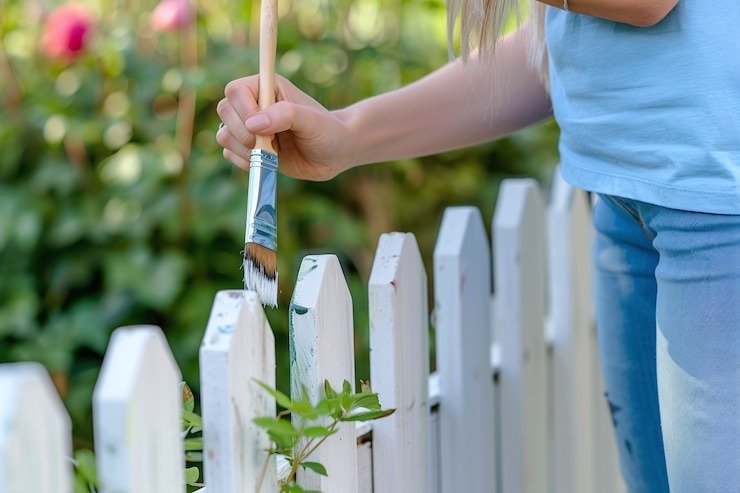How to Choose the Best Whole House Filtration System for Your Home
Choosing the Best Whole House Filtration System
Ensuring safe, clean water for your entire home is essential for your health and well-being. A whole house filtration system is the best solution for removing harmful contaminants from all water sources, including showers, taps, and appliances. However, with so many options available, choosing the right one can be overwhelming. This guide is designed to provide clear, actionable advice to help you make the right decision.
Step 1: Understand Your Water Quality
The first step in choosing the right filtration system is understanding the type of contaminants in your water.
How to Test Your Water
- Use a Home Testing Kit: Available online or at local stores, these kits identify common contaminants like chlorine, heavy metals, and bacteria.
- Check Your Water Supplier’s Report: Municipal water suppliers often provide water quality reports (CCR).
- Hire a Professional Lab Test: For a comprehensive analysis, professional testing is ideal.
Common Water Contaminants
- Municipal Water: Chlorine, chloramine, pesticides, pharmaceuticals.
- Well Water: Sediment, iron, manganese, bacteria, and nitrates.
Step 2: Identify Your Needs
Every household has different water usage requirements. Consider these factors:
Flow Rate
- A higher flow rate is essential for larger homes with multiple bathrooms (9–15 GPM).
- Smaller homes or apartments can work well with lower flow rates (6–8 GPM).
Filter Type
- Sediment Filters: For sand, rust, and debris.
- Carbon Filters: Remove chlorine, bad taste, and odors.
- Iron and Manganese Filters: For well water issues.
- UV Filters: Kills bacteria and viruses.
Family Size
- More family members = higher water usage.
- Ensure the system capacity aligns with daily consumption.
Step 3: Compare the Best Whole House Filtration Systems
Here’s a breakdown of the top options available today:
| Brand/Model | Best For | Flow Rate | Key Features | Price |
|---|---|---|---|---|
| SpringWell CF1 | Municipal Water | 9–20 GPM | Removes PFAS, chlorine, pesticides | $$$ (Premium) |
| Aquasana Rhino | Comprehensive Needs | 7 GPM | Multi-stage, UV filter option | $$ (Mid-range) |
| Express Water Heavy Metal | Heavy Metal Removal | 15 GPM | Three-stage filtration, budget-friendly | $ (Budget) |
| iSpring WGB32B | General Purpose | 15 GPM | Iron, sediment, and pesticide removal | $$ (Affordable) |
Step 4: Calculate Installation and Maintenance Costs
A filtration system is not a one-time expense. Regular maintenance and filter replacements are essential for optimal performance.
Costs to Consider
- Installation: Professional installation may cost $200–$500.
- Filter Replacement: Typically required every 6–12 months, costing $50–$200 depending on the system.
- Add-ons: UV filters or water softeners may increase costs.
DIY vs. Professional Installation
- DIY: Cheaper but suitable only for simpler systems.
- Professional: Necessary for complex setups or larger homes.
Step 5: Evaluate Benefits of a Whole House Filtration System
1. Healthier Water
- Removes harmful contaminants like chlorine, lead, and bacteria.
- Improves water taste and smell.
2. Protects Appliances
- Prevents scale buildup in pipes, water heaters, and dishwashers.
- Extends appliance lifespan and reduces repair costs.
3. Skin and Hair Health
- Eliminates harsh chemicals that cause dryness and irritation.
- Soft water improves the texture of skin and hair.
Step 6: Install and Monitor Your System
Once you’ve chosen your system, follow these steps:
- Hire a Professional or DIY Installation: Ensure proper placement to filter all incoming water.
- Monitor Performance: Regularly check flow rates, water pressure, and filter conditions.
- Schedule Maintenance: Keep track of when filters need replacing to avoid system inefficiency.
FAQs About Whole House Filtration Systems
Q1: What is the best filter for hard water?
A: Look for systems with a built-in water softener, such as the Aquasana Rhino.
Q2: How long does a whole house filtration system last?
A: Most systems last 10–15 years with proper maintenance, but filters need regular replacement.
Q3: Are these systems energy-efficient?
A: Yes, most filtration systems operate passively and do not use electricity unless paired with UV filters.
Conclusion: A Healthier Home Starts with Clean Water
Investing in the right whole house filtration system ensures your family’s safety, improves appliance performance, and enhances your overall quality of life. Systems like the SpringWell CF1 or Aquasana Rhino provide premium filtration for larger needs, while affordable options like Express Water are ideal for budget-conscious households.
By following this guide, you can confidently choose a system that fits your needs, giving you peace of mind and crystal-clear water every day.
Next Steps
- Test Your Water Quality: Identify your contaminants.
- Choose a System: Based on your home’s needs and budget.
- Install and Enjoy: Start experiencing the benefits of pure water.
Why You Need to Read These Articles
Design for Home Care of Georgia
The Ultimate Guide to Gray Kitchen Cabinets






